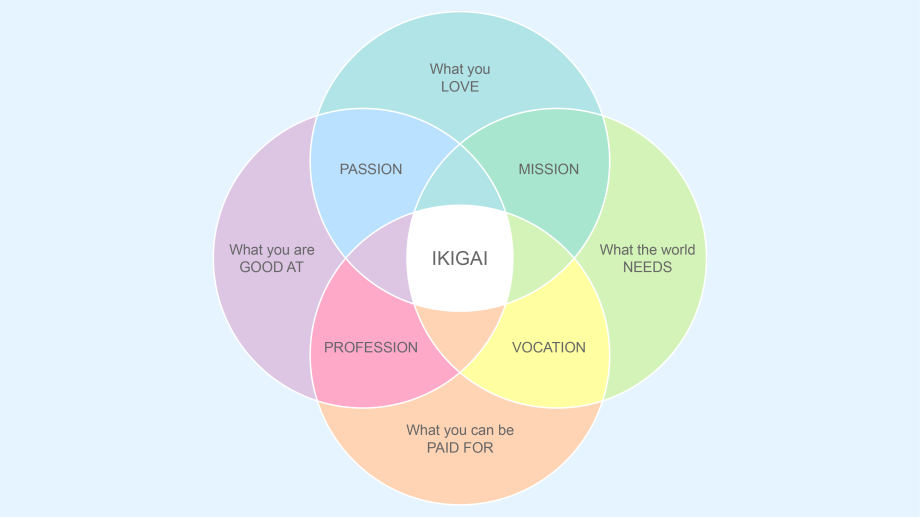Ikigai as a corporate philosophy
Why we should integrate the Japanese life principle Ikigai - "what it’s worth living for" - into our working life and the corporate world.

Ikigai is a traditional concept from Japan that is considered the key to a fulfilled life. “Iki” means “life” and “gai” can be translated as “value”. For the Japanese, Ikigai is the personal reason for getting up in the morning. Historians assume that the model for personal self-discovery originated in Okinawa. Not only do some of the happiest people in the world live on the Japanese island, they also grow particularly old. Okinawa has the highest number of centenarians in the world. Discovering our personal Ikigai can help us live a more stress-free life, appreciate what we have, and improve or maintain our physical and mental health.
Ikigai in professional life
The core concept of Ikigai is to find the meaning of one’s existence. Our professional activities play a particularly important role in this. But how can we find our Ikigai in a professional context? In most cases, it does not happen not overnight, but through conscious reflection. The Ikigai model is made up of four sections, the union of which leads to our ideal activity. At the heart are the following four questions:
- What do I like to do, what do I love?
- What am I good at, what distinguishes me?
- What does the world need, how can I do good for humanity?
- How can I earn money?
Our passion, mission, profession and vocation emerge from the intersection of these four elements. The clearer you are aware of what gives you joy, fulfilment, but also how you can contribute to society or the environment, the more likely you are to have a reason to get up in the morning. If you can even make a living at it, you are in a particularly fortunate position. In reality, the four areas of the Ikigai flower are often very different from another. It is therefore important to find a balance in the course of one’s life, both in terms of time and content.
Ikigai as a corporate compass
The Ikigai model is not only suitable for personal self-discovery, it can also be adapted for organizations. For managers, Ikigai is suitable as an instrument for staff motivation and development. Those who support their employees in finding out in which position they can develop best, strengthen the working atmosphere and employee loyalty at the same time. Employees who find their work meaningful are less likely to be absent due to illness and continue to develop professionally and personally. The motivation and appreciation of each individual thus contributes to an efficient, harmonious team.
Studies show that a sense of purpose is increasingly important for many. More and more people are looking for a meaningful workplace that enables them to live a fulfilled life. As part of the corporate mission statement, the Ikigai philosophy can guide the “corporate purpose”, which serves self-preservation, employees and ultimately the common good. Social and environmental change, a globally interconnected economy – and not least unforeseen events such as the Covid-19 pandemic – are just some of the factors that companies have to deal with increasingly. Corporate purpose creates added value that combines profit generation with the assumption of social responsibility and is reflected in the organizational structure, strategy and relationships between employees, customers and stakeholders.
Sources:
Josef W. Seifert: New Work & Ikigai
(https://www.moderation.com/unternehmen/referenzen-news/details/article/new-work-ikigai.html)
Shizuka Kobayashi: Ikigai. The Japanese Philosophy for a Happy and Meaningful Life (2020)
Wikipedia: Corporate Purpose (https://de.wikipedia.org/wiki/Corporate_Purpose)
2019 Workforce Purpose Index (https://www.2019wpi.com)
Tim Tamashiro: How to Ikigai (https://youtu.be/pk-PcJS2QaU)